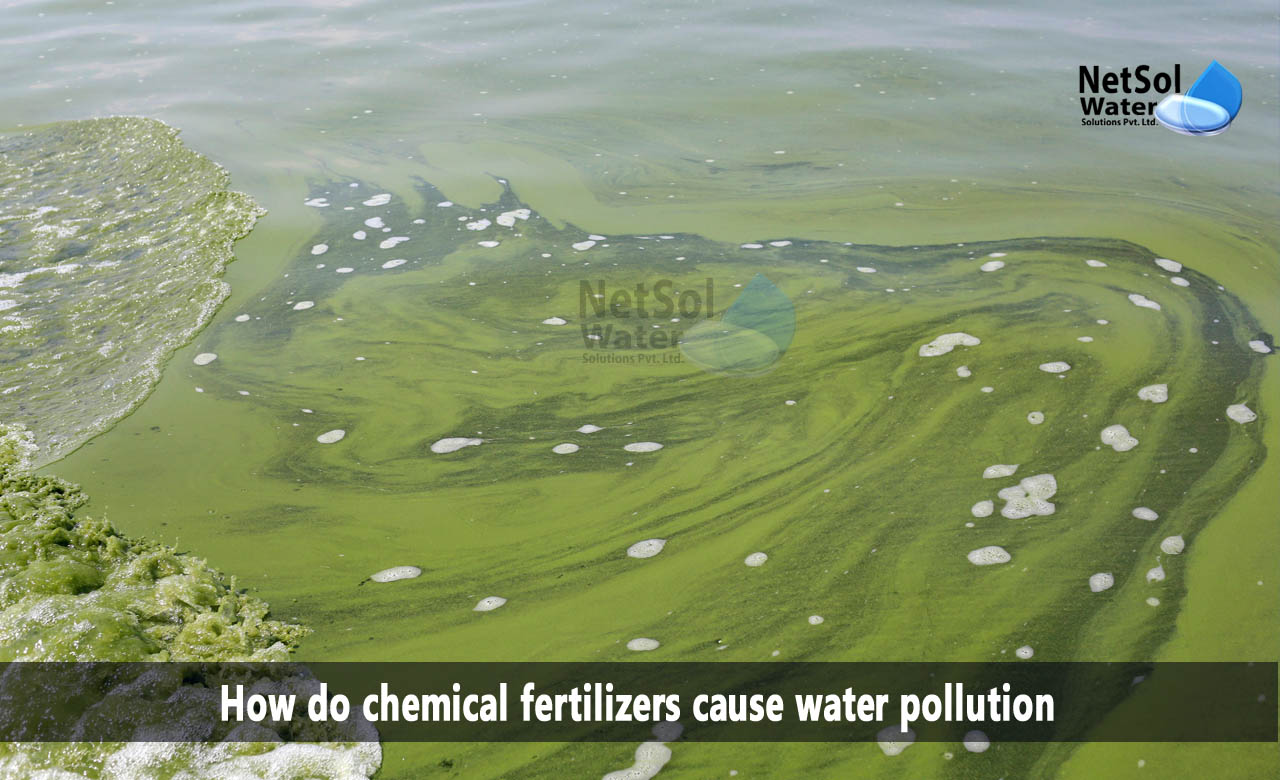Phosphates and nitrates, which are present in chemical fertilizers, have the potential to be the main contributors to water pollution. The process of eutrophication, which increases the nutrient content of the water surface, is facilitated by environmental nitrogen and phosphorous. The nutrients and expansion of the lake's organic matter are related to the trophic state of the lake.
When chemical fertilizers are used, nitrate, potassium, and phosphate are released into the environment, polluting the water. Groundwater becomes contaminated as a result of nitrate's leaching. Heavy metal contamination in the ground and surface waterways puts both people and animals at risk. Additionally, ammonia emissions from fertilizers cause acidification, which reduces the quality of water bodies.
Let’s learn about how chemical fertilizers cause water pollution.
Do fertilizers cause pollution?
Fertilizers commonly referred to as plant food, poison plants in excessive quantities. Fertilizers are intended to keep plants healthy and help them develop quickly, but because they contain some chemicals, they can also be pollutants. When this happens, it's important to know how to get rid of the pollutants.
If plant food is unintentionally consumed, inhaled, or even comes into contact with people or animals, it can be dangerous. The fertilizers are harmful since they might irritate the skin when touched. Although necessary for plant growth, large quantities of nitrogen can be harmful to people. Nitrates are known to decrease the ability of red blood cells to carry oxygen in the human body.
How do fertilizers harm water quality?
Fertilizers are used by farmers to grow higher-quality crops, but they are also hazardous because they cause water quality issues in rivers and other bodies of water, to decline when runoff from fields enters them.
Chemical fertilizer finds its way to the neighbouring water bodies due to irrigation, snowfall, rain, and other natural occurrences, causing:
· The drinking water is contaminated by a lot of nitrogen.
· Nitrate poisoning can occur in animals when nitrate concentrations are high enough to reach groundwater.
· Eutrophication is caused by a higher concentration of nutrients that run off to the water bodies. This condition leads to an algal bloom in the water body. As a result, the oxygen level falls and aquatic life perishes. Additionally, it becomes challenging for water conveyance to pass.
· Marine life suffers greatly from fertilizer discharge. Microorganisms proliferate as a result of the chemicals because they cause a drain of nutrients. As a result, the oxygen is depleted, and the aquatic animals suffocate to death.
How do chemical fertilizers cause water pollution?
The following are a few of fertilizers' negative effects:
1. Leaching and discharge are the main ways in which lawn and garden pesticides, are often absorbed by the groundwater. Water quality declines and groundwater becomes contaminated, which has negative consequences on crops and aquaculture.
2. The algae bloom, which prevents water transportation, is caused by an overabundance of nutrients that come from fertilizers. Dead zones are created when the algae die and descend to the bottom of the riverbed, making it hard for aquatic life to exist.
3. The crops that are irrigated from these contaminated water bodies carry chemical strains, which may be dangerous for eating by humans.
4. The aquatic insects especially caddy flies, which are the primary food source for fish and frogs, can become infected by the toxins when they are dumped into rivers and other water bodies.
Conclusion
Runoff of toxic chemical fertilizer into bodies of water is deemed detrimental. According to studies conducted by scientists, using fertilizers sparingly is advantageous. In fact, because it doesn't support the negative consequences, using organic fertilizer may be superior in this regard.
Netsol Water is a key provider of WTPs, WWTPs, STPs, and ETPs manufacturing services, among other services.



